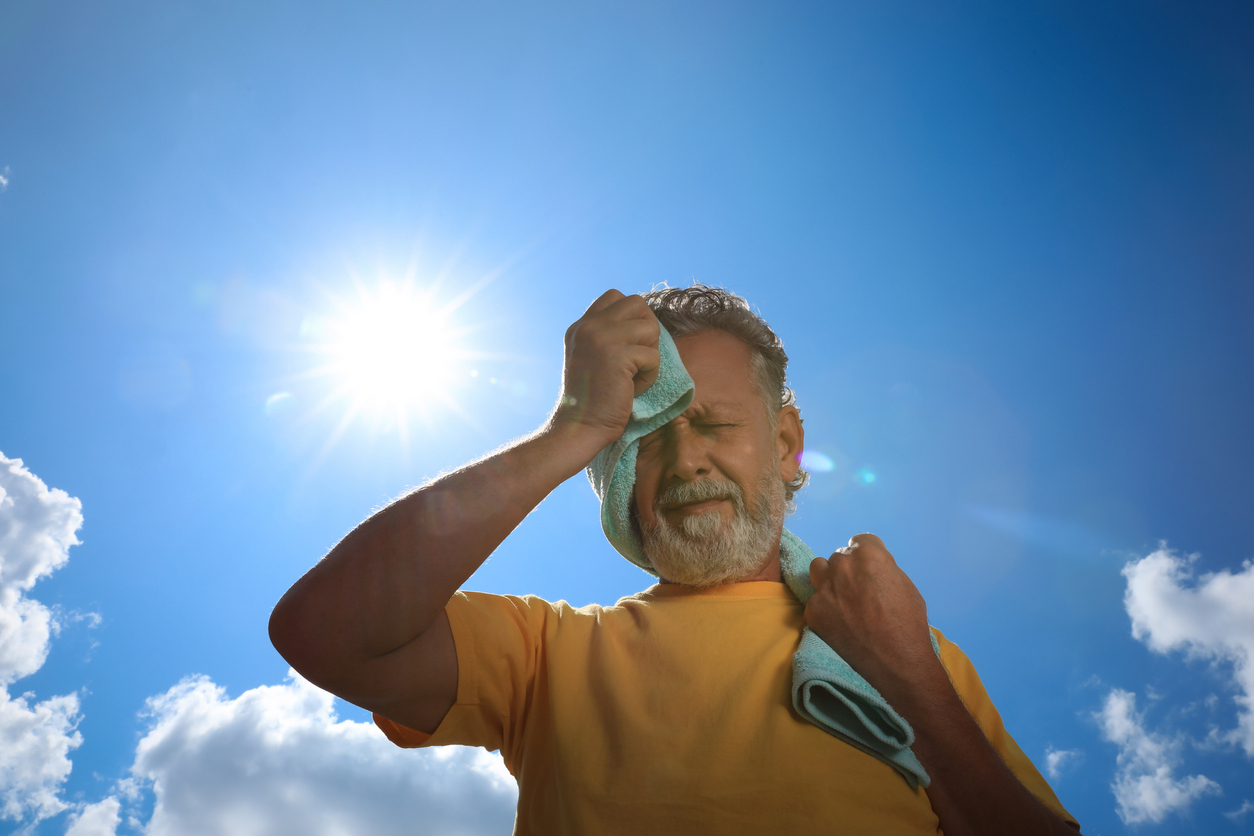Commitment + Clinical Leadership = Better Outcomes

Heat Awareness Day: Safety Tips
Depending on where you’re geographically located, the summer months are typically the hottest out of the year. Hot weather means greater sun exposure, more heat, and a higher risk of heat-induced illnesses and injuries. Did you know that heat and heat waves cause more deaths than any other weather disaster?1
National Heat Awareness Day was established to encourage those outside, especially workers, to know the signs of a heat illness and how to stay safe while in the hot sun. Here are some heat safety tips to keep you and your loved ones safe while you’re working or enjoying your time in the sun this summer.
Educate yourself
The best way to avoid a heat-induced illness or injury is to educate yourself and those around you. Frequently check the forecasted temperatures and heat index.
One summer heat safety tip is to know how to avoid heat-related health concerns. For example, hydrate, limit your time in the sun, and know the warning signs of a heat-induced illness.
Hydrate
One of the best heat safety tips is to stay hydrated. Water is vital to your body and your organs need water to function. A lack of water can lead to dehydration, which can affect you mentally and also cause your heart and kidneys to work harder.
Drinking water is the best way to stay hydrated. You can also limit your intake of diuretics, such as coffee or alcohol, that cause you to lose more fluid easily.
Replenish Electrolytes
If you’re outdoors in the sun and sweating vigorously, your body loses salt and minerals. Replacing these electrolytes is important to help replenish your body with the minerals it needs.
You can often replace electrolytes by eating healthy foods. If you work outside for long hours, try to take breaks to drink water and eat a snack. If you want to opt for a water or beverage with added electrolytes, always check with your doctor about the safety of drinking these first.
Wear sunscreen
Sunscreen is essential on hot, sunny days because it protects you from sunburn. Sunburn is not only painful, but it can affect your body’s ability to cool down and can potentially leave you dehydrated.2
To avoid sunburn, wear sunscreen and limit your time outdoors in direct sunlight. You can also wear a wide-brimmed hat and loose-fitted protective clothing to shade your body from the sun. Check out our blog here to learn more about how to choose the best sunscreen for your skin.
Avoid overexertion
If you work outdoors or will be spending a lot of time outdoors, it’s important to avoid overexertion. Another summer heat safety tip is to stay out of the sun when possible and take frequent breaks indoors with air-conditioning or a fan.
Limit any strenuous activities outside in extreme heat. Staying hydrated can also help you avoid being over-exerted in extreme heat.
Use the heat index
The risk of heat-related illnesses becomes greater as heat and humidity increases. The heat index is known as the apparent temperature. It shows what the temperature feels like to the human body with humidity and air temperature combined.
Click here to check out the heat index. It will show you a chart to check the apparent temperature on any given day, as well as explain the risks and effects that extreme heat can have on your body.3
Leave nothing in the car
When the summer days are long, hot, and humid, the sun can easily penetrate windows, and hot air can stay trapped in a vehicle.
Do not leave anyone, including children or pets, in a hot car for any amount of time. You also want to make sure you do not leave any medications in a hot car, because extreme temperatures may affect a medication’s potency, which can affect your health.
Prepare the house
You may need to check that your house, or an older loved one’s house, is prepared for extreme heat. Make sure the air-conditioning is working and any filters are replaced if needed.
You can weather-strip doors and windows, or cover windows with drapes, to ensure the heat is not warming up the inside of your house. Another heat safety tip is to add window reflectors that are designed to reflect heat back outside.4
Know if you’re at risk
Those working in the heat who are older than 65, are overweight, have high blood pressure or heart disease, or take medications that are affected by the heat, are more at risk for heat-induced illnesses and complications.5
If this describes you or any of your loved ones, check with a doctor before working outdoors or being outdoors for an extended amount of time.
Know when to seek medical attention
Knowing how to spot a heat-induced illness or injury could be life saving to you or those around you. Seek medical attention immediately if you notice any severe symptoms including:
- Rapid pulse
- Heavy sweating
- Dizziness
- Confusion
- Vomiting
- Loss of consciousness1
If you or a loved one frequently experience similar symptoms in the heat, talk with a medical professional.
Stay Safe in the Heat
Now that you know more about heat safety and how to stay safe in the hot weather, share these tips with your loved ones. The more you know about warning signs of heat exhaustion, the less likely an emergency is to occur.
Saber Healthcare is an organization that provides services to more than 130 buildings across the states of Ohio, Pennsylvania, Virginia, North Carolina, Indiana, and Delaware. To learn more about our company and services, click here.
Saber Healthcare is an organization dedicated to providing consultant services to long-term care providers. This article is for informational purposes and is not meant to be seen as professional advice. Please consult with a medical expert before relying on the information provided.
Sources
- https://www.weather.gov/media/rah/heat/outreach_heatposter_final.pdf.
- https://www.cdc.gov/extreme-heat/prevention/?CDC_AAref_Val=https://www.cdc.gov/disasters/extremeheat/heattips.html
- https://www.weather.gov/ama/heatindex#:~:text=The%20heat%20index%2C%20also%20known,sweat%20to%20cool%20itself%20off.
- https://www.ready.gov/heat.
- http://osha10hrtraining.com/blog/summer/protecting-workers-from-heat-illness/.
